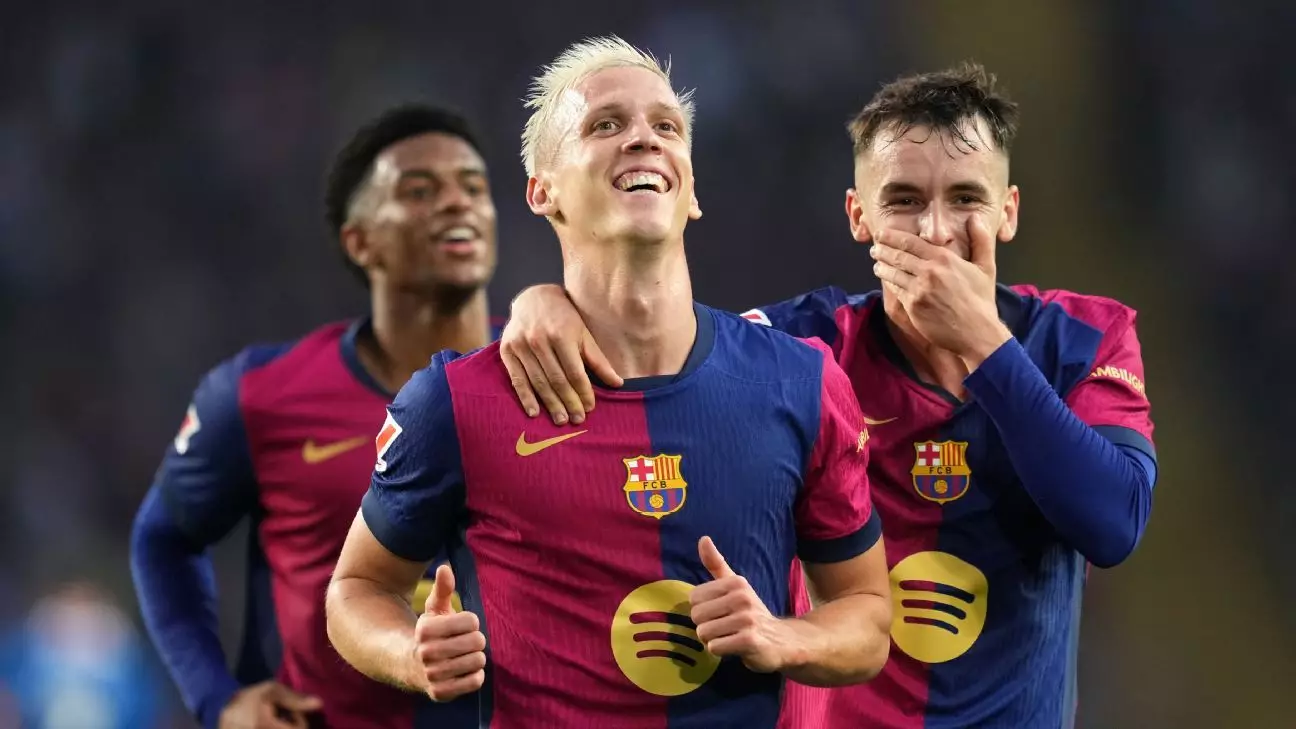Barcelona’s recent bid to reinstate Dani Olmo and Pau Víctor for the latter half of the LaLiga season has hit a significant roadblock, as confirmed by a joint statement from LaLiga and the Royal Spanish Football Federation (RFEF). The ruling denies the inclusion of both players in Barcelona’s squad following their absence from the Copa del Rey match against fourth-tier Barbastro. This decision arises amidst escalating tensions surrounding financial regulations within Spanish football and Barcelona’s struggle to comply.
The conflict traces back to Barcelona’s failure to meet a December 31 deadline necessary to demonstrate compliance with LaLiga’s financial fair play (FFP) regulations. Initially, Olmo, signed from RB Leipzig for €60 million, and Víctor were registered using a loophole that allowed clubs to account for a portion of salaries owed to injured players. However, the strategy backfired as the club’s documentation arrived too late and ultimately led to the cancellation of their registrations.
LaLiga’s insistence on strict adherence to its FFP rules showcases the importance of financial discipline in modern football. This incident underlines a pivotal moment for Barcelona, a club that has previously faced scrutiny over its financial management and expenditures. The club’s efforts to demonstrate its commitment to sound financial practices foundered at a critical juncture. As the regulatory environment becomes increasingly stringent, this failure exposes broader vulnerabilities within club management that need urgent attention.
Legal Recourse: The Fight for Olmo and Víctor
In response to the decision, Barcelona aims to challenge the ruling at Spain’s supreme sports court, the Consejo Superior de Deportes (CSD). The club’s commitment to pursuing legal recourse illustrates its determination to regain the players. Barcelona has expressed dissatisfaction with the outcome and plans to file an appropriate appeal, signaling a potential escalation in their battle against regulatory frameworks they consider unjust.
The complexities of the legal system intertwine with the club’s aspirations for a successful season. If successful, the appeal could reshape how LaLiga handles future registrations, especially concerning clubs navigating tight financial landscapes amidst punitive regulations. However, with previous legal setbacks hindering their progress, Barcelona’s path forward remains uncertain. This brewing legal battle could impact the club’s credibility and standing within the league, especially in the eyes of rival teams and stakeholders.
Both Olmo and Víctor now find themselves in precarious positions, caught between club aspirations and regulations that restrict their participation. Although both players signed long-term contracts, they reportedly hold clauses allowing them to leave for free if they are not registered. Interestingly, despite the potential freedom that these clauses offer, sources indicate a reluctance to activate them, showcasing a commitment to the club amid uncertain circumstances.
The situation leaves both players in a state of limbo as they contemplate their futures. Neither can be loaned out due to the absence of their federative licenses, nor can their contracts be rescinded without encountering significant complications. This lack of options severely limits their leverage during a critical period in the season and casts a shadow over their professional aspirations. Furthermore, it raises questions regarding player welfare in a high-stakes environment where financial restrictions overshadow sporting commitments.
Paying the Price for Mismanagement
While the club’s strategies in financial maneuvering aimed at ensuring competitive integrity on the pitch, the fallout of these decisions signals potential mismanagement, hampering its title aspirations. The ill-timed sale of VIP boxes at Spotify Camp Nou—designed to generate substantial revenue—has been exposed as a critical failure, illustrating that some strategic decisions may lack foresight. Hence, it becomes vital for Barcelona to reassess its financial policies while cultivating a culture of transparency and responsibility.
The repercussions of this episode serve as a cautionary tale for clubs operating under similar conditions. Maintaining compliance with financial regulations must be a top priority to avoid involvement in debilitating legal battles that could undermine sporting ambitions. As Barcelona navigates this challenging phase, the outcomes could reverberate across LaLiga, affecting the regulatory landscape and inspiring other clubs to reevaluate their standings.
The standoff between Barcelona and LaLiga over the registrations of Dani Olmo and Pau Víctor illuminates the precarious balance between sporting desires and regulatory compliance. As the club prepares to challenge the ruling, the implications of this case extend beyond mere player registration—echoing lessons that resonate throughout the football community about the importance of financial prudence in the sport.

Leave a Reply